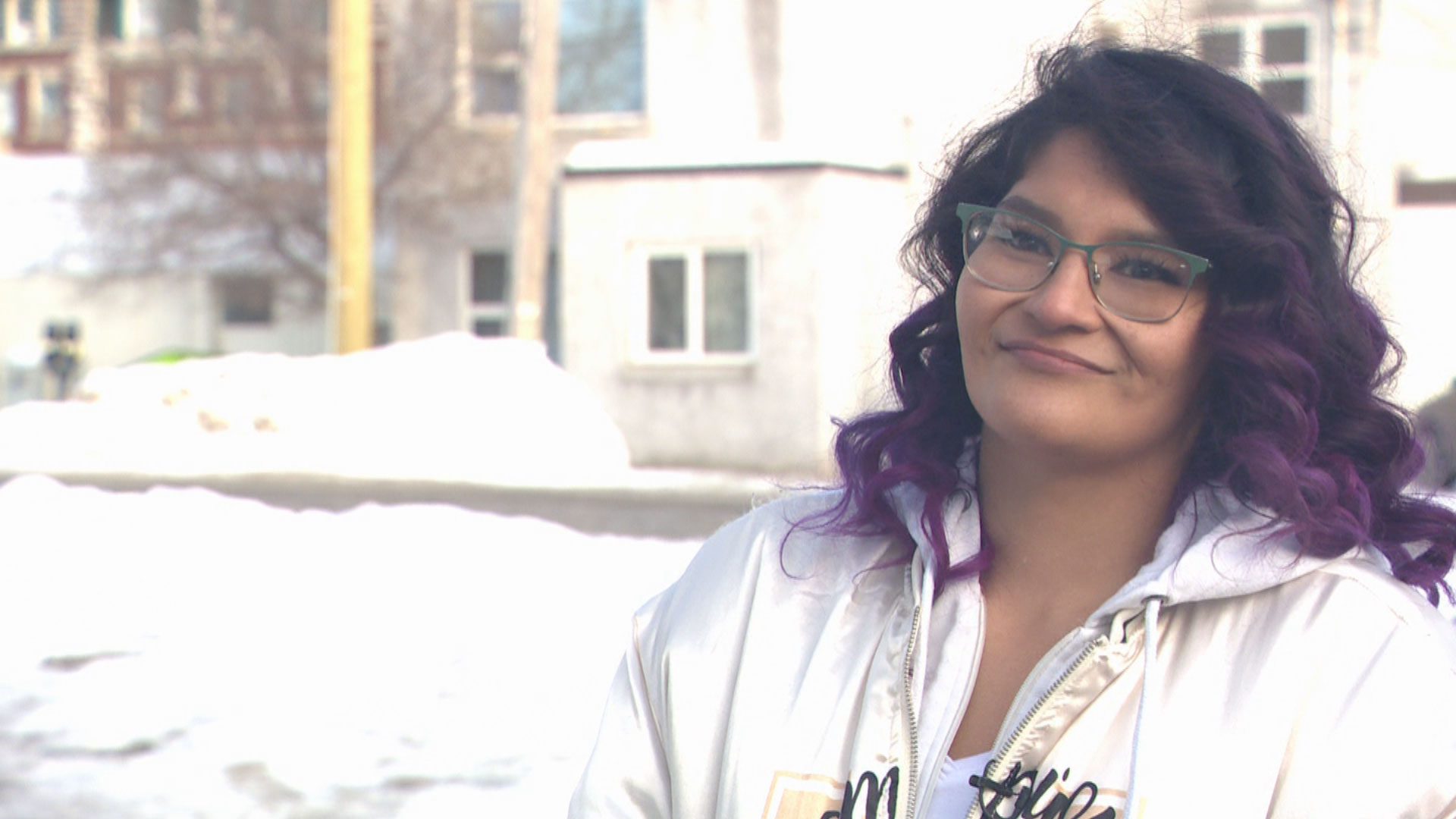You wouldn’t expect to see stacks of cardboard boxes, totes of mismatched shoes, and folded old blankets while having a medical check-up, but a makeshift clinic in a storage room is a doctor’s office for many in the city’s unhoused community.
“I worry that if this is where people feel their medical needs are being met and this is what I’m worth, it kind of makes you think you’re worthless,” says Dr. Jonny Grek, a physician with the Sunset Country Family Health Team in this small, northwestern Ontario city.
Part 3 of APTN’s Kenora Unhoused series looks at what medical care is available for members of the unhoused community – a term advocates now use instead of “homeless” with its negative connotations.
Grek, who offers outreach and addictions treatment to people who otherwise wouldn’t receive the care and open-mindedness they say he provides, stands in the crowded room next to a plastic cart that is used as a medical equipment table.
“This trolley here will have blood-taking equipment,” explains Grek. “Especially now with the HIV crisis, this is frequently used as a room for people to come and get their blood checked, whether they have HIV or whether they might be at risk for contracting it.”
HIV cases
Blood testing is an essential part of his work due to the recent spike in HIV cases, which is spread by sharing needles contaminated with HIV-positive blood.
According to him, there have been 20 cases since January 2022, a drastic number for a small city that hasn’t “really seen HIV [the virus that can lead to AIDS]…in a long time.”
While Grek tells APTN about his work, he is interrupted many times by various people knocking on the door hoping to see him.
“There’s never a quiet day,” he says. “We’ll see 20 to 30 people in a four-hour stretch in this room.”
One of those clients is Lana Ogemah, a born and raised Kenoraite who has been living on and off the streets over the past few years but is presently staying with family.

Lana Ogemah is a peer support worker for people living on the streets in Kenora, who is dealing with her own health crisis. Photo APTN
She says although the clinic isn’t ideal, it’s where she chooses to go because she doesn’t feel respected at other health care facilities in Kenora, a picturesque summer retreat on Lake of the Woods approximately 195 km east of Winnipeg.
“[It] just doesn’t seem like I’m important enough I guess,” say Ogemah, an outreach and harm reduction peer worker.
Ogemah, who is First Nations, is living with a serious complication from surgery she received in a different city for a gallbladder attack in May of 2021. While in surgery, a tube was pushed through her gallbladder and into her colon, she says.
“It’s a whole hot mess in there, I guess, and that just explains how I’m feeling physically.”
A year went by of back and forth referrals between hospitals until she finally received a surgery date to remove the tube in Kenora. She says the preparation was going well until she disclosed her past drug use.
“I felt I had enough courage and built myself up the day before to be honest with them about my past addiction and that I was in recovery, because I was at the time,” says Ogemah.
Vital to disclose
Though it is considered vital to disclose current or past drug use to medical practitioners so they are aware of possible drug interactions, many people who use drugs don’t feel safe to do so due to stigma.
“Their whole demeanor and the way they looked at me just changed,” says Ogemah. “And I could feel it in the room as I’m laying there on the table getting ready to go under…it was a very awful feeling.”
Ogemah found out after the surgery that they could do nothing because the tube and organs are now fused together. She is trying desperately to have the issue fixed and relies on Grek for updates on her condition.
She currently lives on a reserve an hour outside of Kenora and walks or hitchhikes to all of her appointments, but is considering making a longer trek to surrounding cities.
“I would rather go to Thunder Bay where I had the tube put in, but that would be like, a longer walk, hitchhike walk,” she says. ”But then there’s Winnipeg, which is like, I used to hitchhike there all the time when I was a teenager, so it’d be like nothing, right?”
Relies on hitchhiking
Although she relies on hitchhiking for transportation, Ogemah can’t help but feel worried for her safety due to the epidemic of Missing and Murdered Indigenous Women, Girls and Two-Spirit people.
She mentions 16-year-old Delaine Copenace, whose disappearance and later discovery of her body in downtown Kenora in 2016 sparked outrage and criticism for the way the investigation was handled as a constant reminder of the danger she faces as an Indigenous woman in Kenora.
“You don’t know what’s out there or who’s out there or what a person is capable of when you get in that vehicle.”
Ogemah’s story is just one of many that Grek hears at his storage-room clinic in the Kenora Fellowship Centre, a building where many members of Kenora’s unhoused community find comfort.
“If this place didn’t exist, Kenora would really struggle to know what to do,” says Grek.









